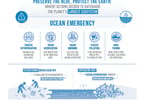Over the past 10 years, the travel and tourism industry has embraced the need to go green, so much so that it is now the norm and not a fad or a unique selling proposition.
Airlines, wholesalers, hoteliers, and tour operators all promote their green tinge and many are happy to ask their clients to help pay for their carbon footprint. We are also seeing a growing market sector in volunteer-tourism where clients pay to work on projects in villages and regions while they are on holiday.
However what is the industry doing about another and potentially more important issue – that of human rights?
Many in the industry are affiliate members of the UNWTO (UN World Tourism Organization), who is active in promoting programs such as Tourism and Poverty Alleviation [ http://step.unwto.org/en ] and Protection of Children in Tourism, as well as other organizations such as ECPAT International or the Grey Man Project; yet how does the industry turn these into real actions and not just logos on their letterhead?
During annual contract negotiations, how many companies seek information on the other company’s human rights policies or the same policies of the country/region they operate in? Or do they, like many, simply ignore the issue because it is too hard and potentially a threat to their bottom line?
Skal International, whose 18,000 members make up the world’s largest organization covering all sectors in the travel and tourism industries, wants to bring this issue to the fore and make it as important to the industry today as the green issue was when it first made its appearance 10 years ago.
States Skal International World President, Mok Singh, “As an industry we cannot continue to ignore the plight of men, women, and children, who because of their sex, race, or religious beliefs have their basic human rights abused and trampled on by governments in countries where international tourism is a major source of revenue.”
“Tourism is one of only of a few industry sectors that continues to see growth, and with this growth comes the need for responsibility – a responsibility to ensure all those involved understand and actively support basic human rights. We cannot sit back and allow clients to continue to fly to and visit exclusive resorts and regions where the local peoples are suppressed by their governments and have little or no basic human rights nor input into how their tourism industry is run or where the profits go to.”
As an industry we need to ask the hard questions and be upfront with all our clients and say, “Yes that is a great destination, however, are you aware of their human rights record?”
Many will say, “That will kill my bottom line. Others won’t follow and my customers will go elsewhere!”
While this may happen in the short term, one can only look at the rise in fair trade initiatives in the food industry, especially coffee, where there is a growing and very profitable market segment emerging as many customers are demanding their daily fix come from a fair trade organization and are prepared to pay more for it.
The travel and tourism industry needs to learn from this example and say to clients, “Yes, that’s a great destination, but because of their human rights record, we don’t recommend it – we would like to recommend this destination which honors their people’s human rights and involves their indigenous peoples in all matters relating to travel and tourism development.”
To achieve this, the industry as a whole, needs to agree on a code of conduct in terms of human rights, and at the same time be very supportive of initiatives within countries who want to develop better human rights systems within their tourism sector and borders.
Mok Singh continues” “Skal International, through its global membership, wants to led this initiative, and along with interested parties and the UNWTO, develop a code of conduct on human rights in the travel and tourism industry. We invite comment from all sectors of the industry – NGOs, and pressure groups within countries whose human rights records are wanting. We also need to establish a comprehensive list of those countries, regions, and companies who continue to ignore the basic human rights of their peoples and employees. This list needs to be published for all to see and comment on. Only then can we truly have an industry that can make a global difference.
“This will take time; however, unless we start now and take the high ground, it will be our customers who will walk away from us and accuse the industry of a profit-before-people stance that will take years to expunge and put the industry on the defensive and a potential course that will see a substantial loss of future revenues.”
WHAT TO TAKE AWAY FROM THIS ARTICLE:
- To achieve this, the industry as a whole, needs to agree on a code of conduct in terms of human rights, and at the same time be very supportive of initiatives within countries who want to develop better human rights systems within their tourism sector and borders.
- We cannot sit back and allow clients to continue to fly to and visit exclusive resorts and regions where the local peoples are suppressed by their governments and have little or no basic human rights nor input into how their tourism industry is run or where the profits go to.
- States Skal International World President, Mok Singh, “As an industry we cannot continue to ignore the plight of men, women, and children, who because of their sex, race, or religious beliefs have their basic human rights abused and trampled on by governments in countries where international tourism is a major source of revenue.






















